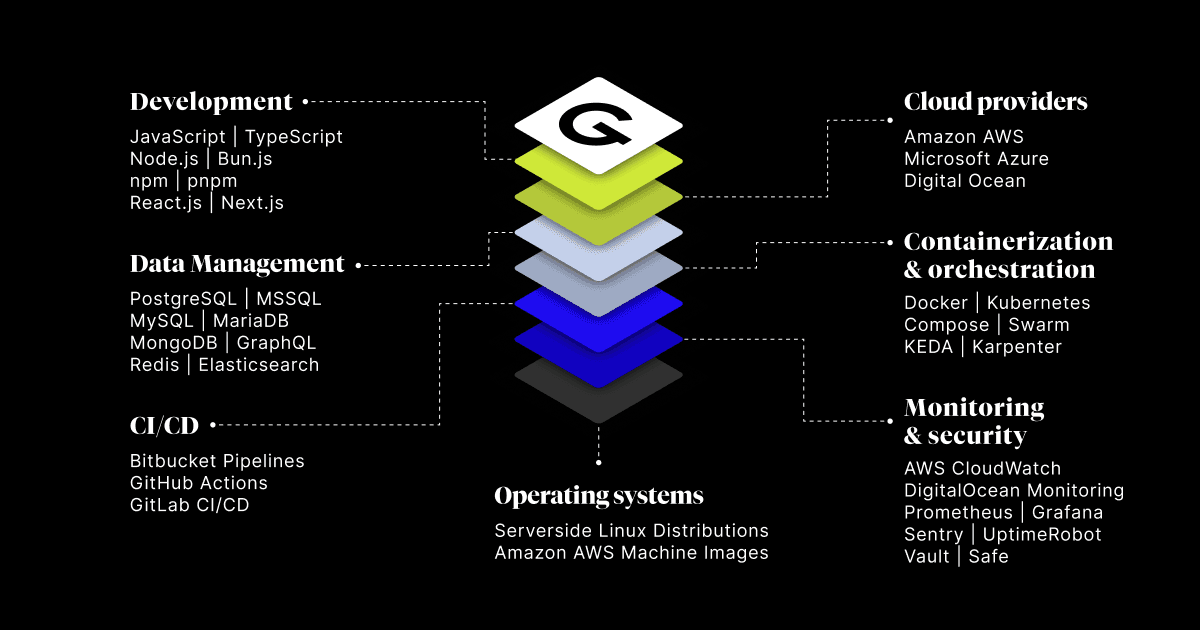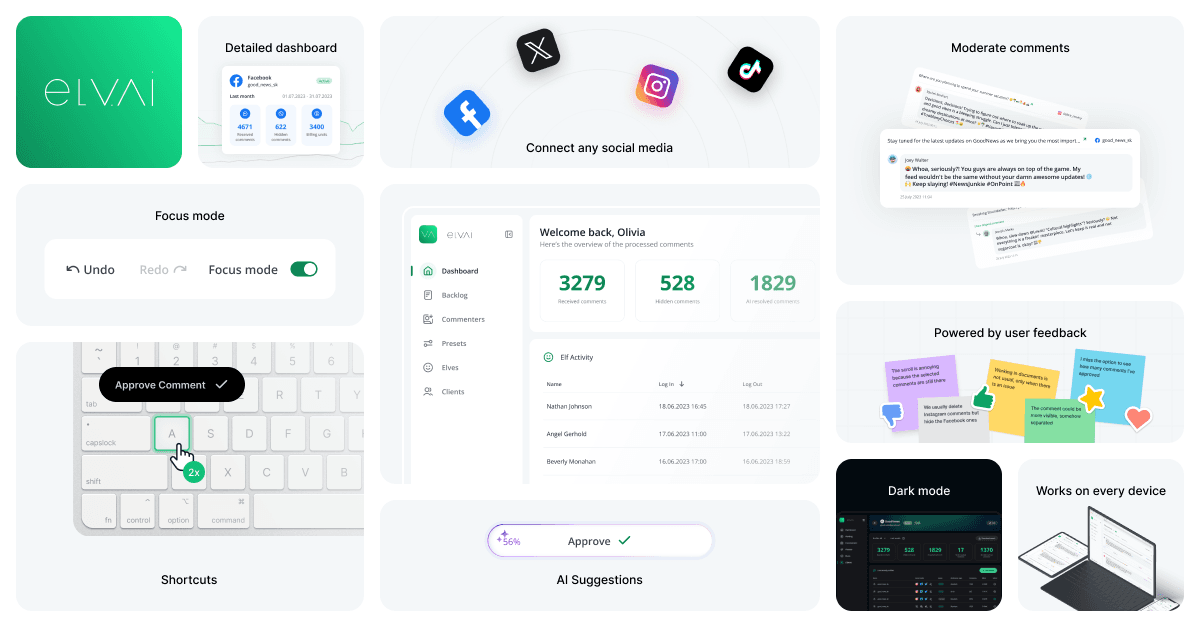
Contact us
Are you ready to streamline your processes?
If you would like more information or need expert help with your DevOps implementation, please do not hesitate to contact us.
DevOps is a modern approach to software development that brings together development and operations teams to accelerate deployment and improve application quality. Through automation, continuous integration, and streamlined collaboration, DevOps helps companies respond to market needs and reduce operational costs. DevOps can drive business transformation, offering companies a competitive edge in today’s fast-paced market.


DevOps is a modern approach to software development that changes the traditional way development and operations teams collaborate. It aims to streamline the software development and deployment process through better collaboration, automation, and continuous integration (CI/CD). But DevOps isn't just a technology - it also represents a deeper cultural change that enables companies to respond more flexibly to market and customer demands. DevOps brings together two traditionally separate areas - software development (Dev) and software operations (Ops) - to deliver a unified vision where speed, quality and stability are not in conflict, but in symbiosis.
Development teams (Dev) focus on building software - designing, coding, and testing applications. Their main priority is to innovate and deliver new functionality as quickly as possible. Operations teams (Ops), on the other hand, are responsible for managing the infrastructure and ensuring a stable and reliable environment in which applications run. For them, the availability and performance of the systems is important. Historically, these teams have had different priorities, which has often led to misunderstandings and delays in software deployment. DevOps solves this problem by bridging these two worlds - developers and operators work together, share responsibilities, and leverage tools that promote automation and transparent collaboration.

DevOps addresses the fundamental challenges associated with delayed product launches and enables companies to respond more quickly to dynamic customer needs and changing market conditions. This approach significantly reduces time to market for new services, allowing companies to maintain a competitive advantage.
DevOps directly impacts important business metrics such as uptime (99.9% or more), system stability, and uptime efficiency. For management, this means not only increased productivity and reduced risk, but also new opportunities for scaling and innovation within the business.
To better understand the benefits of DevOps, let's take a look at a few specific examples from our portfolio where we have successfully implemented this methodology.
In collaboration with the development team, we created an application infrastructure that dynamically adapts to fluctuating input processing demand and is optimized for dedicated infrastructures. Through this solution, we have optimized the use of cloud resources, which is directly linked to a significant reduction in operating costs.

In cooperation with the client's technical team, the process of deploying the application into live operation directly in the Web3 environment was implemented. This process seamlessly integrates the tools and platforms of our stack with decentralized technologies such as IPFS (InterPlanetary File System).
With the needs of a large team and complex development process in mind, we augmented CI/CD with customized processes, including automating the collaborative work environment, optimizing technology complexity, and optimizing security practices to protect sensitive data, resulting in faster development and better security.

There are many benefits to adopting DevOps - from faster time to market to higher quality and more efficient use of resources. But implementing it isn't always easy. It takes time, the right processes and the right leadership. Many companies face challenges when moving to DevOps, such as a lack of technical skills or unclear priorities between development and operations. That's why it's crucial to have an experienced partner who can guide you through the process. With experience in automation, CI/CD, and managing infrastructure as code, we can help your business successfully implement DevOps, accelerate your digital transformation, and achieve long-term results.


If you would like more information or need expert help with your DevOps implementation, please do not hesitate to contact us.





